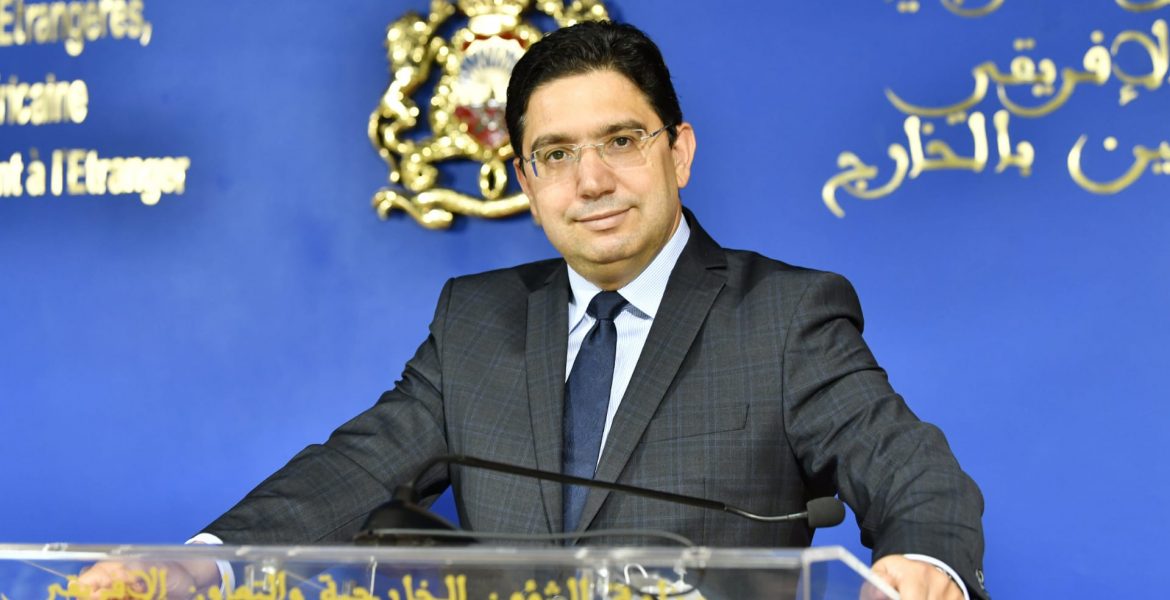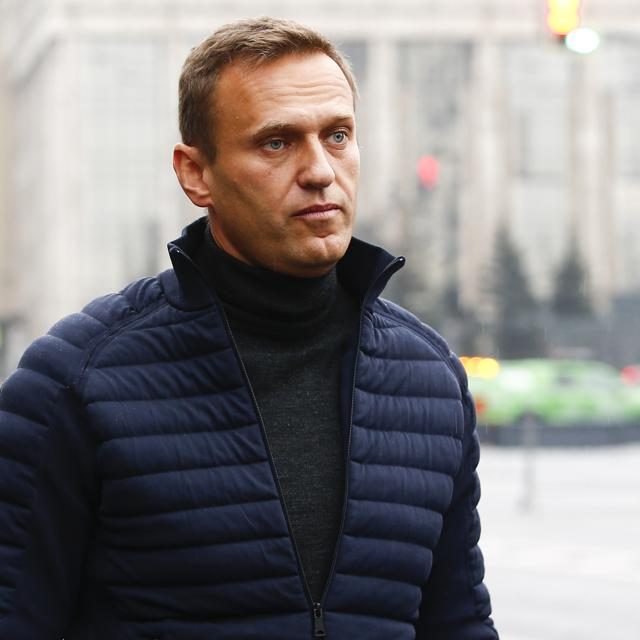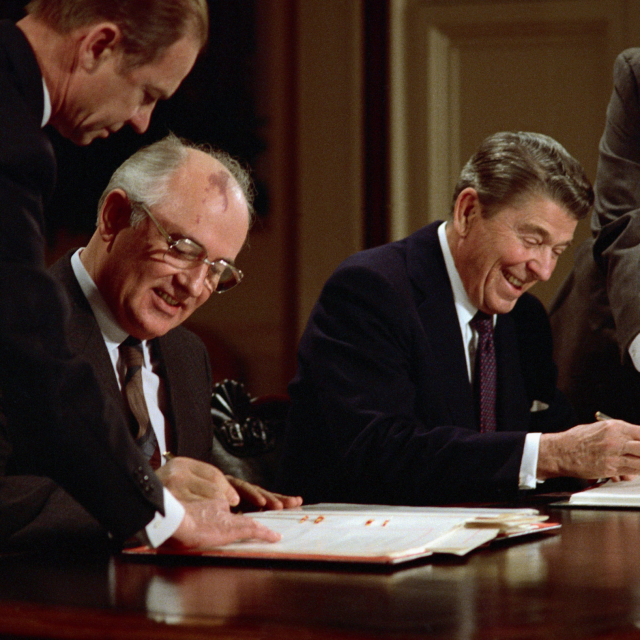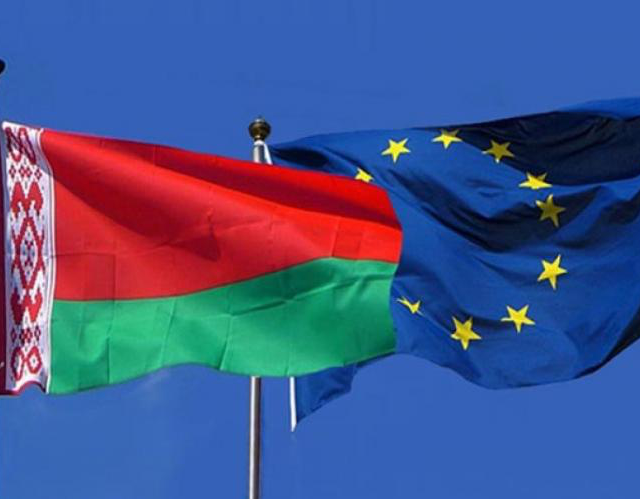Commenting on the European Commission’s recent communication on its partnership with the Southern Neighbourhood countries, the Moroccan Foreign Minister, Nasser Bourita said that he believes that the strategy lays the foundations for a new post-Covid-19 relationship between the European Union and Morocco, provided that Europeans do not take decisions affecting the southern shore of the Mediterranean without prior consultation. He also urged the EU to get on board with leading the recognition of Moroccan sovereignty over Western Sahara.
In an interview with Mathieu Bion of Agence Europe he explained that the pandemic challenges the Morocco-EU partnership to project onto the post-Covid-19 period. The recent Commission communication is relevant for its timing and innovative in its approach.
“European Commissioner Várhelyi and the EU in general made an effort to consult the countries concerned before finalising the communication.” he said. “We used to find out about these documents through the media. This time, we had several sessions to share our aspirations and questions. The content of the communication also reinforces our overall approach. In June 2019, Morocco and the EU agreed on four areas of cooperation which are today very relevant.”
“In 7 of the 12 proposed flagship projects—including the Mohammed VI Fund for Strategic Investments, renewable energies, sustainable agriculture, social protection—Morocco feels a convergence between national priorities and the priorities that the EU wants to give in its relations with the neighbourhood.”
“The interest is also that we get out of the intergovernmental arena,” he went on to say, “The EU officially declared on Monday 22 February that Morocco had fulfilled its commitments on tax cooperation. Morocco has, from the outset, considered that dialogue must be the basis managing sensitive issues between the two partners and that the EU, with this kind of list, should take into account the global nature of the partnership. The EU cannot set criteria and declare: ‘We use them for the Cayman Islands, we use them for Morocco’. If the southern neighbourhood is important, it should not suffer the consequences of decisions taken by the EU. The southern Mediterranean countries must be involved, not in the decision, but at least in the deliberation.”
“Morocco has asked the EU to move away from this teacher-student method of thinking and to enter into one of consultation in which each understands the concerns of the other in order to arrive at solutions that can satisfy the interests of Europe without damaging Morocco’s interests. The result is good, but the starting point has raised considerable questions from Morocco.”
Commenting on the status of the Covid-19 vaccination campaign in Morocco, Bourita said that the vaccination campaign is part of a global approach initiated by His Majesty the King to manage the pandemic.
“The first discussions on the vaccine began in April 2020, and Morocco signed the first vaccine-related documents in August. Preparatory work began at the end of October. Since the first doses were received in January 2021, nearly 2.5 million people have been vaccinated. Morocco is in the top six internationally,” he said.
“We use vaccines from AstraZeneca and Sinopharm based on advice from the national scientific committee and the WHO. For Sinopharm, Morocco also participated in the clinical trials with a sample of 600 people to whom the vaccine was administered.”
Asked about delays in delivery, he replied, “Access to vaccines is an international issue. Demand far exceeds production capacity. I am not saying that there are no difficulties, but so far the supply has been normal.”
In terms of European bilateral aid to fight the pandemic, the European Union was among the first partners to support Morocco. €450 million has been paid into the Special Anti-Covid-19 Fund. This is a reallocation of resources that were earmarked for different bilateral projects and programmes. The money was for access to protective equipment and business support. The vaccine is 100% financed by the Moroccan state budget and is distributed free of charge.
“Morocco is the country that has given the most to Africa during this period, as protective equipment has been delivered to more than 20 African countries,” said Bourita, “Africa has shown resilience. Its collapse, which some predicted, did not happen, on the contrary.”
On the subject of migration, Bourita said that passage through Morocco affects Moroccans, but also an enormous number of Sub-Saharan Africans for whom Morocco is the gateway to Europe.
“Morocco considers that the phenomenon of migration is exaggerated for political rather than objective reasons. Figures show that African migration to Europe is in the minority: less than one person in ten.”
“In coordination with Spain in particular, Morocco conducts operations to fight human trafficking networks which are not necessarily on this side of the Mediterranean shore. The number of dismantled networks is enormous. Morocco’s deployed security and material effort seeks to ensure that the ‘western’ route of migration is the least used, even if it is the most obvious route compared to the ‘central’ and ‘eastern’ routes.”
On the question of Moroccan sovereignty over Western Sahara, “Morocco is ready to engage in a process under the aegis of the United Nations, to find a solution within the framework of its autonomy initiative to the Sahara issue.At the end of January, 42 countries supported this approach. This is not an isolated position, but a trend at the level of the international community. At the end of January, 42 countries supported this approach. This is not an isolated position, but a trend at the level of the international community. All that is needed is for Europe to step out of its comfort zone and support this international trend. The process has been going in circles for years. Today, a direction is emerging, and it is this direction that the EU must also embrace.”
“Europe needs a stable and secure Sahelo-Saharan area. These wishes may remain empty words, if there is no commitment. The train is pulling away from the station today. Is Europe going to remain passive or contribute to this dynamic?”




